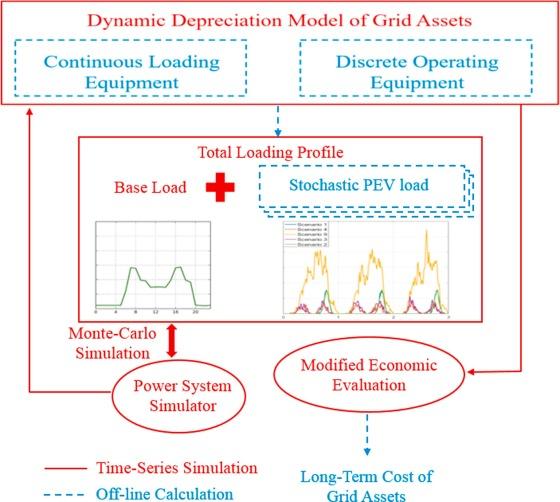
In this exclusive ESI Africa article with Future Market Insights, we review plug-in hybrid vehicles as a sustainable choice for the African population.
Mobility is one of the pillars of socio-economic development and is crucial for human well-being. The public transportation system not only improves access to work but also creates novel job opportunities. Robust transit systems increase urban productivity and lower consumer prices in the region.
However, the private transit system in its current form is unsustainable; causes air pollution, climate change and vehicle-related casualties. The COVID-19 pandemic highlighted both public transport challenges and opportunities in developing cities. So now the question arises, how can African cities move to sustainable, reliable and regulated public transport?
Never miss a story. Join our community.In most African countries, private car ownership is low and the available modes of transportation are primarily informal, privately owned and inaccessible. Furthermore, the majority of private vehicles used are petrol or diesel vehicles imported from the European or American regions. This offers a unique opportunity to build a reliable and regulated public transport system that lays the foundation for electric vehicles (EVs) in Africa in the long run.
To address this issue, regional governments are taking initiatives to introduce hybrid electric vehicles in public and private transit systems. Due to a lack of proper charging infrastructure and relatively high cost, the adoption of fully electric vehicles is sluggish. However, the demand for plug-in hybrid electric vehicles is increasing as they can work as conventional vehicles once their battery is emptied.
Future Market Insights forecasts that the hybrid vehicles market will expand at a staggering compound annual growth rate (CAGR) of 20.4% and surpass a market value of $335 billion by the end of 2026.
Thus, in this article, we focus on how hybrid vehicles can move African cities to sustainable, reliable and regulated public transport, while also discussing the pros and cons of hybrid and fully electric vehicles.
Sub-Saharan African countries are looking to switch to electric vehicles as a long-term solution to mitigate air pollution and reduce traffic congestion. They are focusing on adopting hybrid electric public transport vehicle models adopted by China and Latin America.
Currently, China owns almost 98% of the global electric bus fleet backed by strong government support and fuel-saving regulations. The sharp decline in the number of passengers during the pandemic has allowed governments to rethink public transport in African cities and made it easier to switch systems.
Have you read?New wireless charging tech could boost adoption of electric vehicles
Sub-Saharan African cities are grabbing the opportunity and moving away from informal networks to transportation that offers the best of both worlds: electric public transport. For instance, in Uganda, locally manufactured electric buses from Kiira Motors have started transporting passengers in and around Kampala.
Most Sub Saharan countries import polluting and unsafe vehicles for both private and local public transport. Now, they are moving away from being the dumping grounds for the world’s most polluting vehicles and emerging as a source of fast-growing demand for electric vehicles, showcasing the potential to be a source of innovation in new electric vehicle technologies and business models. Growing governments and investors’ interests will help expand this innovation and accelerate future plans for African hybrid electric vehicles.

Research has shown that electric vehicles are good for human well-being and are cheaper than conventional vehicles in the long run. These cost-benefits increase as the production volume increases. Despite the benefits, plug-in hybrid electric vehicles adoption in South Africa is sparse due to increased upfront costs and power supply and distribution issues. In addition, the heavy customs duty applied on plug-in hybrid electric cars is derailing the growth of the same.
To overcome these challenges, International organisations are taking initiatives to facilitate the construction of charging infrastructure so that plug-in hybrid electric vehicles can be phased in. For instance, the UN environment programme along with the global electric facility recently announced its plans to help South Africa to shift to zero-emission electric mobility. Through this partnership, the programme will focus on building electric charging stations, cutting down on production and manufacturing costs and offering affordable plug-in hybrid electric cars. Successful execution of this programme will drive the sales of plug-in hybrid electric vehicles in the region.
Have you read?EU funds uYilo e-Mobility to scale electric mobility in Africa
Similarly, South Africa’s uYilo eMobility Programme is awarded funding within the Smart Energy Solutions for the Africa (SESA) project. Under this programme, South Africa’s electric mobility solutions along with repurposing of batteries utilised in electric vehicles will be extended. The SESA project also aims at developing an affordable and sustainable energy access solution while contributing to low carbon development and climate change mitigation that can be improved for deployment across Africa.
Also, The South African government has begun public consultation on how to increase domestic production of electric vehicles (EVs) and make the country more competitive in the global plug-in hybrid electric vehicle market. The Department of Trade, Industry and Competition has issued a strategic document aimed at putting South Africa at the forefront of global competition to transition to electric mobility technology. They are looking to create an appropriate tax and regulatory framework and business environment that will make South Africa a world leader in electric vehicle manufacturing.
Feasibility remains an important issue in the African region. The following challenges are preventing the adoption of Plug-in Hybrid electric vehicles in private and public transportation settings:
Have you read?Fast-growing new upgrades for public transport in Egypt
To overcome these challenges, plug-in hybrid car manufacturers are planning to establish manufacturing units in Africa and develop dynamic policies and provide tax incentives to electric vehicle owners. For instance, Japanese multinational manufacturer Toyota Motors recently launched Corolla Cross, a hybrid electric car locally manufactured in South Africa. This reduced the cost of the hybrid car, thus making it affordable for local people. Through this launch, the company is focusing on “green consciousness” in the region. The car is also integrated with self-charging technology that allows the battery to self-charge through the SUV’s petrol engine.
Africa-led electrification could be a long-term solution to electric public transport. In the best scenario, plug-in hybrid electric vehicles can be advantageous for off-the-grid locations because people can use batteries to power their devices. As countries expand their power grids, they will be able to meet the needs of plug-in hybrid electric vehicles in unprecedented ways.
Furthermore, the integration of technology to self-charge batteries that sustain for longer durations along with the region focusing on reducing carbon emission will enhance the adoption of plug-in hybrid electric cars. Moving ahead, research and development to make plug-in hybrid electric cars more efficient will change the face of passenger cars in Africa. It is important to adopt mitigation strategies like managing network congestion through controlled charging and ensuring that the size and location of the charging station meet the needs of public transport drivers.
Have you read?Getting from A to B matters in more ways than you realise
With smart technology and proper regulation, plug-in hybrid electric vehicles, through dynamic charging and vehicle-to-grid applications, can become an asset rather than a threat to grid stability. For consumers affected by regular power outages, plug-in hybrid electric vehicle batteries may be able to power household appliances until the grid is restored.
The power systems of many African countries are currently limited but expanding rapidly. Africa’s power generation capacity is expected to double by 2040. Although the growth of the plug-in hybrid electric vehicles market is slow, based on the aforementioned factors, plug-in hybrid electric vehicles may become an integral part of Africa’s electric mobility journey. ESI
Find out more about the Future Market Insights report on the Plug-in Hybrid Electric Vehicles Market.
About the Author:
Nikhil Kaitwade is Associate Vice President (AVP) – Market Research at Future Market Insights, ESOMAR-certified market research and consulting firm Future Market Insights (FMI).
Enlit Africa (the unifying brand for African Utility Week and POWERGEN Africa) invites you to join the conversation 7-9 June 2022 in Cape Town, South Africa.